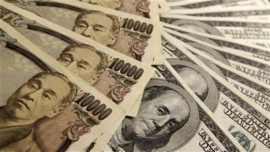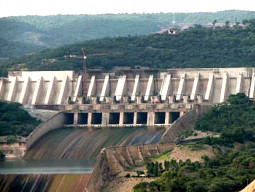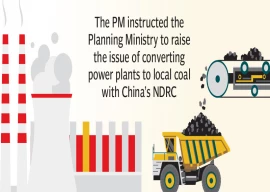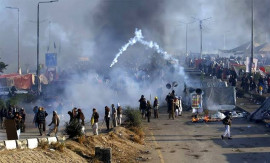
ISLAMABAD:
Pakistan will continue the purchase of dollars from the spot market in the new fiscal year after it bought $2.9 billion in the previous year aimed at building foreign currency reserves and reversing appreciation of real effective exchange rate that has made its exports uncompetitive.
The continued spot market operations by the State Bank of Pakistan (SBP) may also bring the value of Pak rupee against the US currency under pressure.
From July through March last fiscal year, when the central bank was undertaking spot market purchases, the rupee shed its value by 3% against the US dollar, showed a recent report of the International Monetary Fund (IMF).
Pakistan and the IMF have also agreed to increase the Net International Reserves - the net official foreign currency reserves excluding all reserves related liabilities, by another $1 billion to $8.3 billion for end-September period.
The officials said the target will largely be achieved by buying dollars from the market.
Read: Understanding: Pakistan says yes to increasing reserves to $15.43b by June
In its latest report, the IMF said that the SBP has significantly stepped up its spot market purchases of foreign exchange and netted $2.9 billion till end-May 2015. The IMF said these purchases will increase the reserve coverage to well above three months of imports and bolster resilience against future external shocks.
“Staff and the authorities agreed that further accumulation of reserves will be strongly desirable as the balance of payments position remains vulnerable and reserves are still significantly below adequacy norms”, stated the IMF report.
The low prices of crude oil in the international markets provided the government space to mop up dollars from the market.
The report was written after completion of the seventh review of Pakistan’s economy held in Dubai in May this year.
The IMF was of the view that further accumulation of reserves could also “help arrest the recent upward trend in the real effective exchange rate, which was inconsistent with (economic) fundamentals”. The real effective exchange rate is defined as the inflation-adjusted value of the country’s currency relative to other major currencies.
In real terms, Pakistan’s currency appreciated by 8% from July through March of last fiscal year.
IMF’s concern was that the country’s real effective exchange rate should not have appreciated indicating that the present nominal exchange rate of Rs101.74 to a dollar is not the right price and the rupee should be depreciated.
The rupee-dollar parity in the open market was Rs103.05 to a dollar.
Therefore, for the new fiscal year, the IMF has projected that the real effective exchange rate will depreciate by 3.5%.
It is believed that the central bank’s spot market purchases of dollars will be an important tool to achieve this goal.
The exporters have been complaining about the value of rupee that according to them has made their goods uncompetitive in the international markets. They are advocating depreciation of rupee to remain competitive -a demand that the Ministry of Finance is not ready to accept.
Read: Currency: Rupee stable against dollar
From July through May of last fiscal year, Pakistan’s exports amounted to $21.9 billion -5.3% less than the comparative period of the preceding fiscal year.
According to the IMF’s diagnosis, the exports have plunged due to lower global commodity prices, ongoing shortages in electricity supply, and 8% real exchange rate appreciation.
The IMF seemed agreeing to Pakistan’s position that besides the exchange rate, a range of other issues need to be addressed to more fundamentally address the issue of competitiveness.
These issues are electricity shortages, law and order situation and the business environment.
The industry is also crumbling under heavy taxation, as the PML-N government has slapped roughly Rs600 billion additional taxes during the last one year including Rs238 billion levied with effect from July 1.
Published in The Express Tribune, July 5th, 2015.
Like Business on Facebook, follow @TribuneBiz on Twitter to stay informed and join in the conversation.






















1713350999-0/Tribune-Collage-Feature-Images-(5)1713350999-0-270x192.webp)

1713348933-0/BeFunky-collage-(3)1713348933-0-270x192.webp)





















COMMENTS (2)
Comments are moderated and generally will be posted if they are on-topic and not abusive.
For more information, please see our Comments FAQ